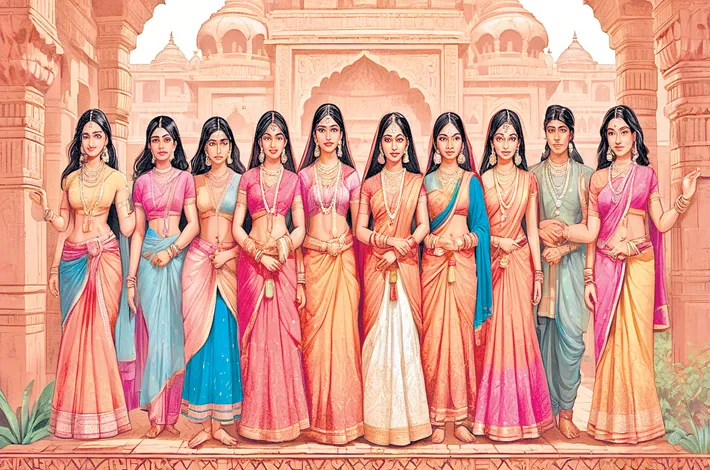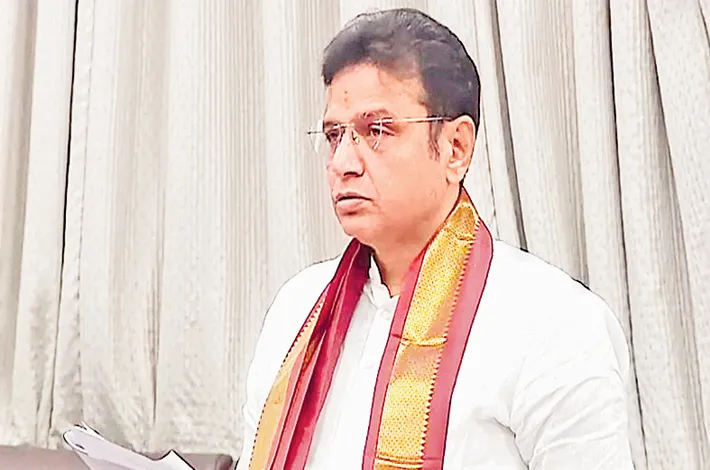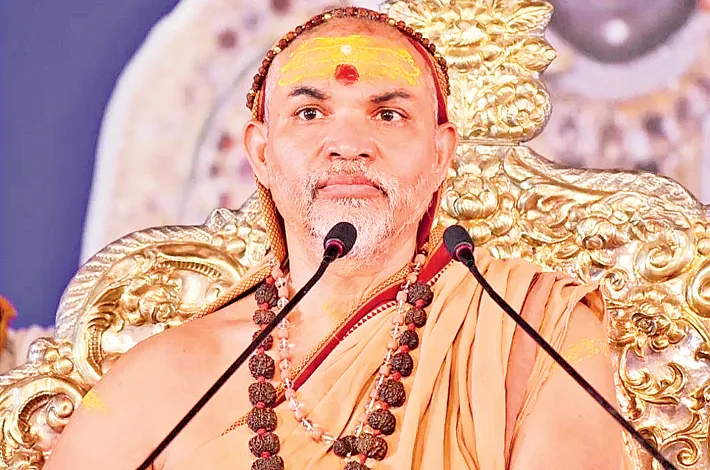The Indian Value System in Social Life
10-05-2025 12:00:00 AM

India’s cultural diversity—spanning languages, religions, and traditions—has shaped a value system that embraces inclusivity. The coexistence of Hinduism, Islam, Christianity, Sikhism, Jainism, and other faiths has fostered tolerance and mutual respect. Festivals like Diwali, Eid, Christmas, and Guru Nanak Jayanti are celebrated with shared enthusiasm, often transcending religious boundaries.
The Indian value system is a rich tapestry woven from centuries of tradition, spirituality, and cultural evolution. Rooted in ancient philosophies, religious texts, and societal practices, it shapes the social life of Indians in profound ways. This system emphasizes collectivism, respect for elders, hospitality, and moral integrity, creating a framework that fosters community cohesion and individual responsibility. Despite the rapid modernization and globalization of Indian society, these values remain deeply ingrained, influencing interpersonal relationships, family structures, and societal norms.
The Foundation of Indian Values
At the heart of the Indian value system lies the concept of Dharma, often translated as duty or righteousness. Derived from ancient texts like the Vedas, Upanishads, and epics such as the Mahabharata and Ramayana, Dharma guides individuals to act in accordance with their roles in family, society, and the cosmos. It emphasizes ethical behavior, truthfulness (Satya), and non-violence (Ahimsa), principles that permeate social interactions. For instance, resolving conflicts through dialogue rather than aggression reflects the influence of Ahimsa in everyday life.
Another cornerstone is Karma, the belief that actions have consequences, shaping one’s present and future. This philosophy encourages accountability and mindfulness in social dealings, as individuals strive to perform good deeds to ensure positive outcomes. Together, Dharma and Karma create a moral compass that aligns personal conduct with societal harmony.
Collectivism and Family-Centric Values
Indian society is predominantly collectivist, prioritizing group welfare over individual desires. The family is the nucleus of social life, serving as a support system and a repository of values. Respect for elders is a defining feature, with younger generations seeking guidance from parents and grandparents. This hierarchical structure fosters unity and ensures the transmission of cultural norms across generations. For example, major life decisions—such as marriage or career choices—are often made collectively, with family input carrying significant weight.
The concept of Vasudhaiva Kutumbakam ("the world is one family") extends this familial ethos to the broader community. Indians are known for their hospitality, welcoming guests as divine embodiments (Atithi Devo Bhava). Whether in rural villages or urban homes, offering food and shelter to visitors is a cherished tradition, reinforcing social bonds and mutual trust.
Respect for Diversity and Inclusivity
India’s cultural diversity—spanning languages, religions, and traditions—has shaped a value system that embraces inclusivity. The coexistence of Hinduism, Islam, Christianity, Sikhism, Jainism, and other faiths has fostered tolerance and mutual respect. Festivals like Diwali, Eid, Christmas, and Guru Nanak Jayanti are celebrated with shared enthusiasm, often transcending religious boundaries. This pluralism is evident in social gatherings, where people from different backgrounds come together, reinforcing the idea of unity in diversity.
The value of Seva (selfless service) further strengthens community ties. Whether through volunteering at religious institutions, organizing community meals (langar), or participating in charitable activities, Seva reflects a commitment to the collective good. This practice is particularly prominent in rural areas, where villagers collaborate during harvests or festivals, embodying the spirit of cooperation.
Gender Roles and Evolving Norms
Traditional Indian values have historically defined distinct roles for men and women, often rooted in patriarchal structures. Women were revered as homemakers and caregivers, embodying virtues like patience and sacrifice, while men were seen as providers. However, these norms are evolving with urbanization, education, and women’s empowerment. Modern Indian women are increasingly balancing professional aspirations with familial responsibilities, challenging stereotypes while retaining cultural values.
Despite progress, gender disparities persist in some regions, particularly in rural areas. Initiatives promoting gender equality, such as education campaigns and legal reforms, are gradually reshaping societal attitudes. The Indian value of Shakti (divine feminine energy) underscores the potential for women to be agents of change, aligning traditional reverence for femininity with contemporary demands for equality.
Spirituality and Social Conduct
Spirituality is a defining feature of Indian social life, influencing behavior and relationships. Practices like yoga, meditation, and pilgrimage foster inner peace and self-discipline, which translate into compassionate social interactions. The pursuit of Moksha (liberation from the cycle of birth and death) encourages detachment from materialism, promoting humility and contentment.
Religious rituals and festivals play a significant role in social cohesion. Events like Holi, Raksha Bandhan, and Pongal are not just celebrations but opportunities to strengthen familial and community bonds. These occasions emphasize forgiveness, gratitude, and togetherness, reinforcing the values of love and harmony.
Challenges in a Modern Context
While the Indian value system remains robust, it faces challenges in the face of globalization and technological advancements. The rise of individualism, particularly among urban youth, sometimes clashes with collectivist ideals. Nuclear families are replacing joint families in cities, reducing the influence of extended kin. Additionally, exposure to Western lifestyles through media and the internet has led to a reevaluation of traditional norms, particularly among younger generations.
Materialism and consumerism also pose threats to values like simplicity and contentment. The pressure to succeed in a competitive economy can overshadow the emphasis on Dharma and Seva. However, many Indians navigate these challenges by blending tradition with modernity, adopting global perspectives while preserving core values.
Conclusion
The Indian value system is a dynamic force that continues to shape social life in profound ways. Its emphasis on duty, family, hospitality, and spirituality creates a sense of belonging and purpose, fostering resilient communities. While modernization introduces new complexities, the enduring relevance of these values lies in their adaptability.
By balancing tradition with contemporary realities, Indians uphold a system that not only preserves cultural heritage but also offers timeless lessons in compassion, unity, and ethical living. As India strides toward a globalized future, its value system remains a beacon, guiding social interactions with wisdom and grace.








